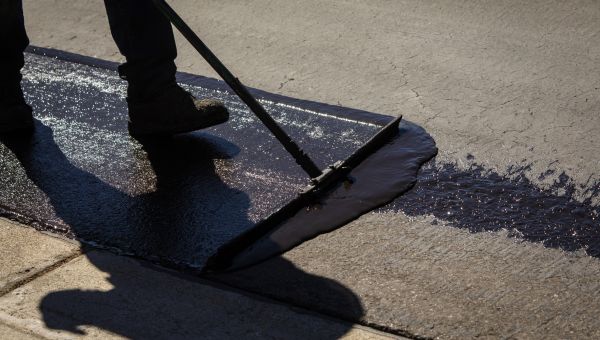Poop red flags you need to know about
Here’s when to worry if something’s not coming out right.
Updated on July 8, 2024

Everyone hopes for predictable poops. But if you happen to find a surprise in the toilet, how do you know whether to worry or flush and forget it?
Here are seven types of bowel movements that you should know about, and when to call your healthcare provider (HCP).

Bright red poop
“First and foremost, a large amount of blood in the toilet should be taken seriously,” says Anthony DeBenedet, MD, a gastroenterologist in Ypsilanti, Michigan. “It will likely require a trip to the emergency room, especially if you’re feeling other symptoms like chest pain or shortness of breath.”&… Show More
“First and foremost, a large amount of blood in the toilet should be taken seriously,” says Anthony DeBenedet, MD, a gastroenterologist in Ypsilanti, Michigan. “It will likely require a trip to the emergency room, especially if you’re feeling other symptoms like chest pain or shortness of breath.”
Bright red blood in your poop usually means that there is bleeding in your lower intestine (colon) or rectum. You may require a procedure or surgery to stop the bleeding if it doesn’t spontaneously stop on its own.
But don’t rush to call the ambulance if you’ve recently eaten beets, which are notorious for turning stools red. There’s also no need to panic if you only notice a small amount of blood on your toilet paper after wiping. This is most likely from hemorrhoids or a small anal fissure (skin tear). That said, it’s still prudent to let your HCP know so they can perform tests to identify the cause.
Show Less
Black, tarry stools
“This type of bowel movement almost always requires emergency attention,” says Dr. DeBenedet. “Black, tarry stools can signal bleeding higher up in the gastrointestinal tract, which can be very serious.” For example, it could be from a bleeding ulcer in your stomach or inflammation in your… Show More
“This type of bowel movement almost always requires emergency attention,” says Dr. DeBenedet. “Black, tarry stools can signal bleeding higher up in the gastrointestinal tract, which can be very serious.” For example, it could be from a bleeding ulcer in your stomach or inflammation in your esophagus. Your stool may also have an abnormally bad smell.
Black licorice, blueberries, and certain medications like iron supplements and Pepto-Bismol can cause this symptom, too. But don’t diagnose yourself; again, call your HCP immediately to be safe. Your HCP can help determine if you need emergency care.
Show Less
Clay-colored poop
“Clay-colored stools can sometimes be a sign of liver problems,” says DeBenedet. Normally, your liver releases bile into the small intestine to help digest food. “Bile gives your stool the brown color that we’re all familiar with,” he explains.
But if your liver isn’t releasing bile into the small… Show More
“Clay-colored stools can sometimes be a sign of liver problems,” says DeBenedet. Normally, your liver releases bile into the small intestine to help digest food. “Bile gives your stool the brown color that we’re all familiar with,” he explains.
But if your liver isn’t releasing bile into the small intestine—because it’s either not processing it correctly or the ducts that drain the bile into the small intestine are blocked—your stool can turn pale or clay colored. If this happens, there may be a yellow appearance to your skin (jaundice) and the whites of your eyes (scleral icterus) due to the bile building up in your system. Your urine may also appear brown like cola.
If you notice clay-colored stools or jaundice, contact your HCP immediately. They can help determine what the next steps should be. That may involve going for an office visit, having bloodwork done, or even going to the emergency room.
Show Less
Thin, ribbon-like stools
“While this can be a sign of colon cancer, the vast majority of people who have ribbon-like stools don’t have cancer,” says DeBenedet. Rather, they may have a condition called irritable bowel syndrome (IBS), which is very common and can also cause thin stools.
“Take note of your bowel habits over… Show More
“While this can be a sign of colon cancer, the vast majority of people who have ribbon-like stools don’t have cancer,” says DeBenedet. Rather, they may have a condition called irritable bowel syndrome (IBS), which is very common and can also cause thin stools.
“Take note of your bowel habits over the span of about two to three weeks,” he says. DeBenedet recommends that if this type of bowel movement is a change for you and the thin stools seem to be continuing, then you should call your HCP to discuss it further.
Show Less
Painful stools
If you have an occasional, rare bowel movement that is painful, you probably don’t need to be concerned. But if it begins to happen frequently, it may be a sign of a problem.
Painful stools can be caused by issues like:
- Constipation
- Anal fissures, which are sometimes caused by constipation … Show More
If you have an occasional, rare bowel movement that is painful, you probably don’t need to be concerned. But if it begins to happen frequently, it may be a sign of a problem.
Painful stools can be caused by issues like:
- Constipation
- Anal fissures, which are sometimes caused by constipation or hard, dry stools
- Hemorrhoids
- IBS
- Endometriosis, a condition in which uterine tissue spreads to other areas of the abdomen
They can also be caused by tumors that develop with anal cancer. Other symptoms to look for with this condition can be blood in the stool, incontinence of stool, and pain in the anus or pelvis.
If you have one or more of these symptoms, it’s important to talk with your HCP as soon as possible. Some conditions may be manageable at home, while others may require more immediate medical treatment.
Show Less
Severe constipation
People may have bowel movements as seldom as every three to four days, or as often as three times a day.
“This is a big range, and everyone’s a little different,” says DeBenedet. “Also, how often you have a bowel movement can change throughout your life. The important thing to remember is that you… Show More
People may have bowel movements as seldom as every three to four days, or as often as three times a day.
“This is a big range, and everyone’s a little different,” says DeBenedet. “Also, how often you have a bowel movement can change throughout your life. The important thing to remember is that you should tell your doctor if you notice a major change in your bowel habits.”
In general, if you haven’t had a bowel movement in over five days, and you’re experiencing cramping, abdominal pain, or bloating, you should tell your HCP. Also tell your HCP if you need to strain for more than several minutes to poop.
“There’s some research showing that straining really hard can increase your blood pressure,” says DeBenedet. “Some people can even faint from it, a condition called vasovagal syncope.” Your HCP can help ease your constipation by prescribing a stool softener or a laxative that’s appropriate for you. They may also recommend increasing the amount of fiber in your diet, drinking more water, and getting regular exercise.
Show Less
Extreme diarrhea with dehydration
“On the other end of the spectrum, if you're having massive diarrhea—to the point where you’ve become dehydrated—that can require emergency care, too,” says DeBenedet.
Seek emergency care for diarrhea with symptoms of dehydration, such as:
- Severe weakness
- Dizziness or fainting
- Little or no … Show More
“On the other end of the spectrum, if you're having massive diarrhea—to the point where you’ve become dehydrated—that can require emergency care, too,” says DeBenedet.
Seek emergency care for diarrhea with symptoms of dehydration, such as:
- Severe weakness
- Dizziness or fainting
- Little or no urination
- Dark urine
- A fever over 102 degrees F
Dehydration can be life-threatening, especially for children, older adults, and people with a weak immune system. If you’re a caregiver, encourage the person you’re caring for to sip on fluids—preferably fluids with electrolytes, such as chicken broth or Pedialyte—between bowel movements and watch them closely for signs of dehydration.
Show Less
MedlinePlus. Black or tarry stools. Page accessed on November 2, 2022.
American Society for Gastrointestinal Endoscopy. Understanding Minor Rectal Bleeding. Page accessed on November 2, 2022.
MedlinePlus. Stools-pale or clay-colored. Page last updated on June 16, 2020.
Cleveland Clinic. Adult Jaundice. Page last updated on July 23, 2018.
Mayo Clinic. Narrow stools: Should I be concerned? Page last updated on July 2, 2022.
Johns Hopkins Medicine. Constipation. Page accessed on November 2, 2022.
Mayo Clinic. Diarrhea. Page last updated on August 18, 2021.
The Mayo Clinic. Vasovagal syncope. February 19, 2021.
National Cancer Institute. Anal Cancer Treatment (PDQ)–Patient Version. Updated October 27, 2021.
Mayo Clinic. Anal cancer. August 12, 2021.
American Cancer Society. Signs and Symptoms of Anal Cancer. Last revised September 9, 2020.
More On


video

article

slideshow


video


video
